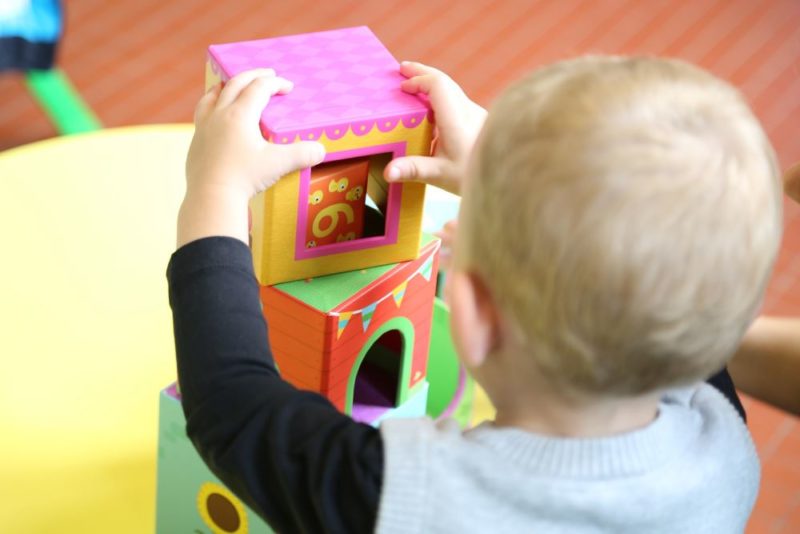After they are born, children’s minds are like blank slates. They gradually learn about the world and themselves from the closest people in their lives. In their early years, people around them are like compasses guiding and navigating them. Where then, does a preschool fit into this picture?
As human beings, we are constantly growing through physical stages. Our bodies undergo changes backed by the opportunities our environment gives us. A child who is not provided with enough food and water will look weaker than a child who is well fed. In the same way, a child’s mind will evolve as he/she grows older, for which suitable opportunities must be provided to him/her.
A preschool is one such opportunity which can do more to help a child grow and evolve, because they are places dedicated to a child’s learning and holistic growth.
A child’s milestones
From birth onwards, a child’s milestones or ‘significant moments’ are paid attention to, in order to recognize and deal with any abnormalities over time. These milestones are different for each age and may manifest a few months before or after the discussed age, depending on each individual child.
Some of these milestones are- the first time a child cries, or smiles, or turns on his/her stomach, tries lifting himself/herself, or crawls and many other behaviours. All these are signs of healthy development in a child. Besides these, the other milestones that are developed from exposure to a preschool are grasping a crayon, learning how to interact with others, running, speaking, etc.
How does a preschool help?
A preschool as the name describes, is a ‘pre’-paration for school. It’s a space to help your child learn skills like reading, writing, socializing, playing, all at a very basic level. Children learn rhymes, colours, numbers, ideas and concepts related to the world in a fun and interactive manner. They also learn to help, care for and interact with others their age and older. All this learning nurtures young children, thus preparing them for school and life.
Can’t my child learn at home?
Many of us may argue that pressurizing children to learn at a very young age can be harmful to the child. But research says the exact opposite. A person’s learning capacity is the strongest from ages 1 – 6, a period during which a child is introduced to preschool. So enrolling a child in a preschool early can actually be helpful towards increasing their potential and improving their social skills much more than they would have at home.
In addition, children get a taste of the real world through their preschool experiences. Carrying one’s bag, eating with other children, taking care of one’s belongings, caring for others, are some of the ways we as adults function with other adults in the world everyday. A child gets this head-start right from preschool onwards.
Choosing a good preschool
Knowing that your child will be away from you for a couple of hours each day, it is essential to choose a preschool that closely matches your expectations in terms of the attention, love, safety and learning that you would have wanted to give your child at home.
It is also important that you assess a preschool based on the openness of its staff and teachers to answer your questions, understand your child’s unique needs (if any), and the objectives they have for your child in the academic year.
It is also important to see if your child will have sufficient space to play, learn and engage in various activities at the preschool and finally if the fees match your budget.
Does learning end at the preschool?
Learning happens all the time and everywhere, with adults and children. It is important for parents to be actively involved in the child’s early preschool development. Parents can continue to practice what is taught at preschool to the child, back at home too.
If concepts and ideas are taught at school, then revisit them through your interaction with the child. For instance if you’re out in the sun and your child has learned about the sun, heat, weather, then revisit these concepts with them again through the songs they learned, by asking them questions and carefully understanding what they’ve been taught. This also encourages for ‘quality time’ between the parent and child.
The same idea applies to manners, morals and other values taught to a child at preschool. If practiced enough at home with valid reasoning, then these are well-internalized by the child. For example, simply telling a child to share will not work. It’s important to show the child how caring makes others feel, how it will make them feel, giving them sufficient opportunities to experience sharing and also what it feels like when they don’t share. It’s through these processes that a child internalizes the idea that sharing as a concept is beneficial to all.
So make smart early choices in terms of a good preschool for your child, and watch him/her blossom into a happy, loving and learning child.
About the Writer
Jerusha D’sa likes expressing herself through words. She tries to educate others through her perspective, expressed through 'the world of words'.








